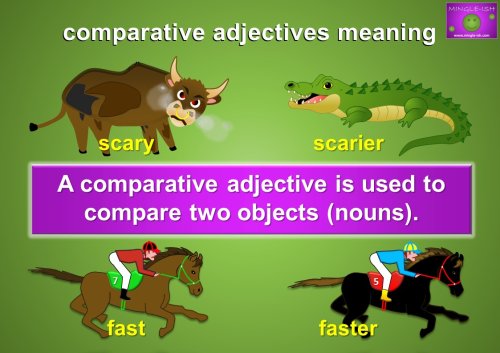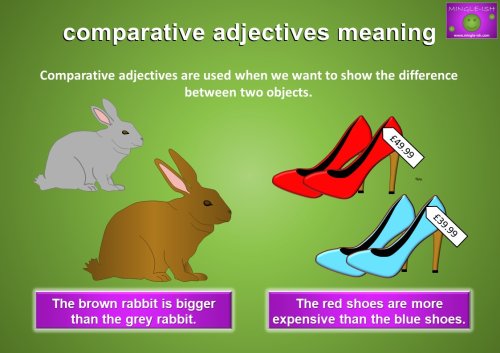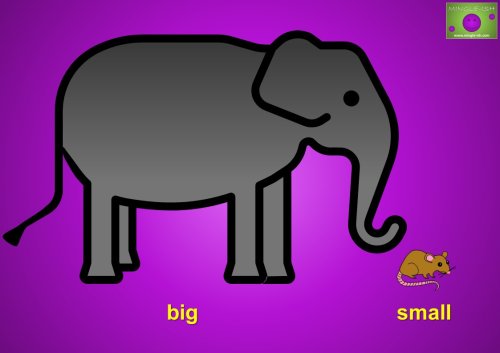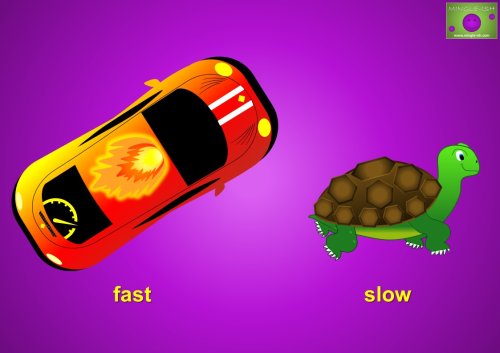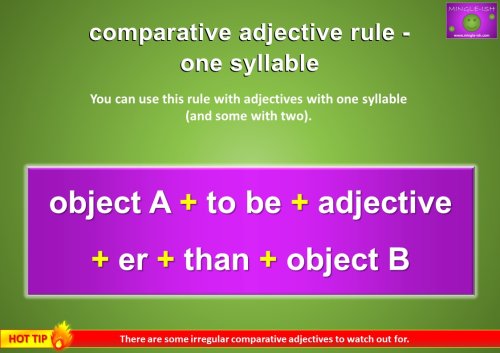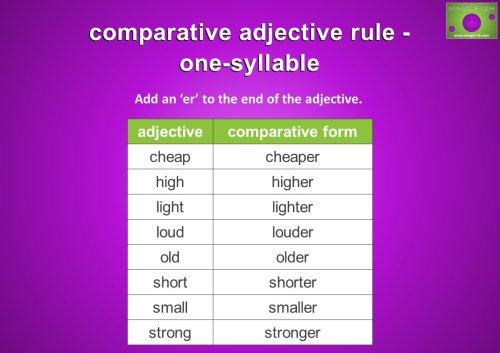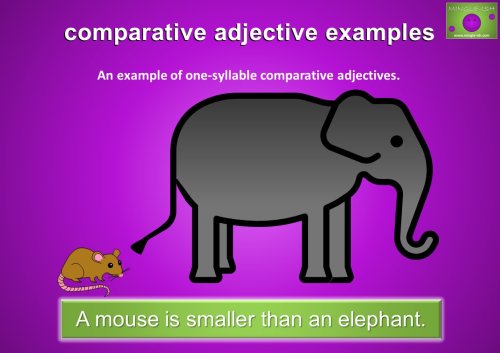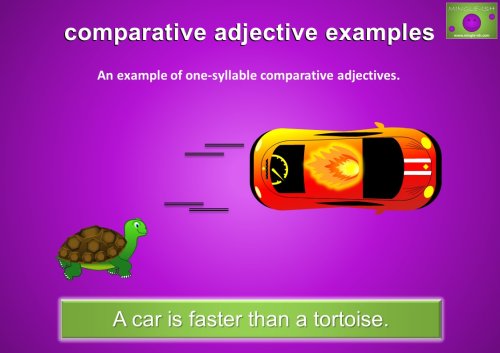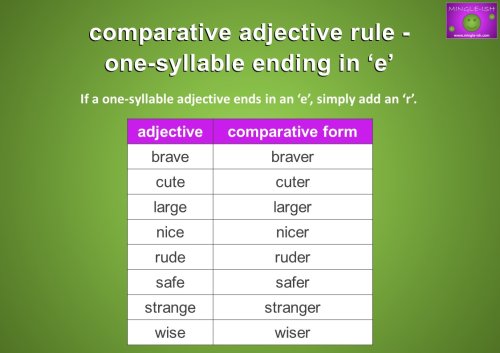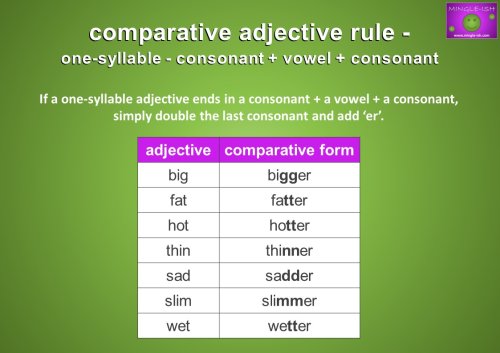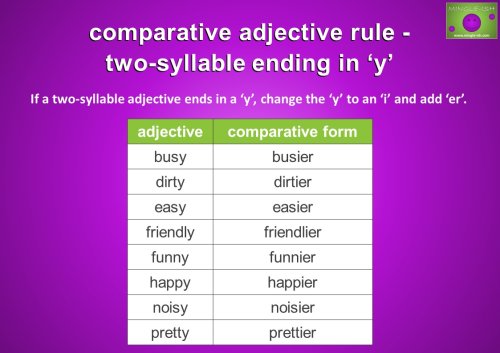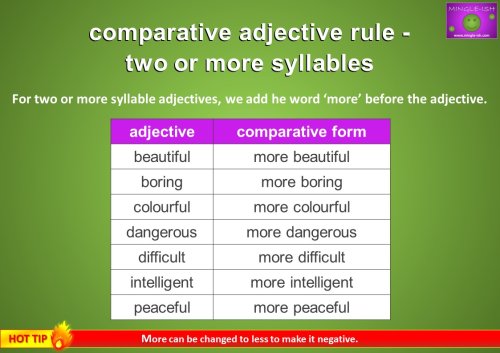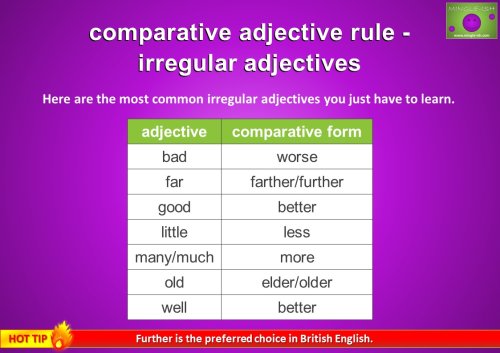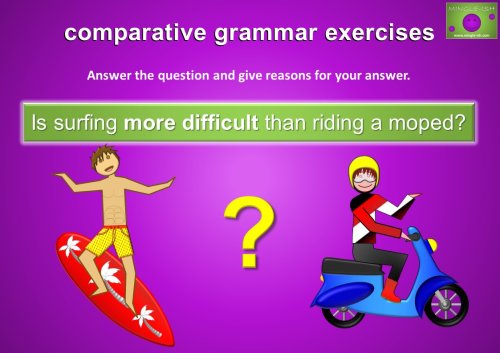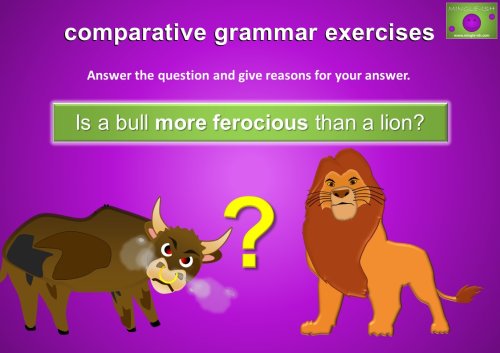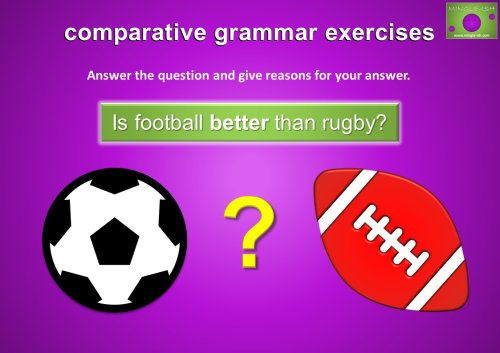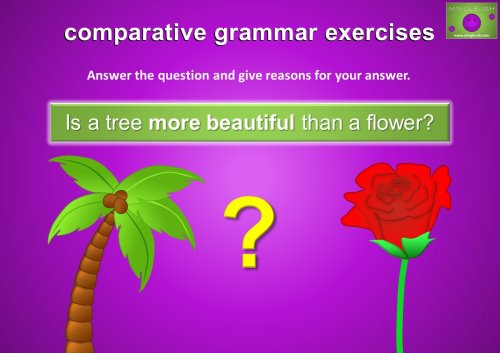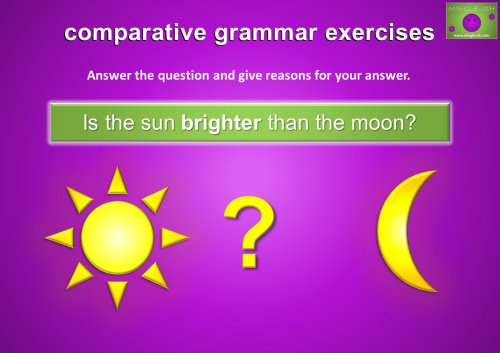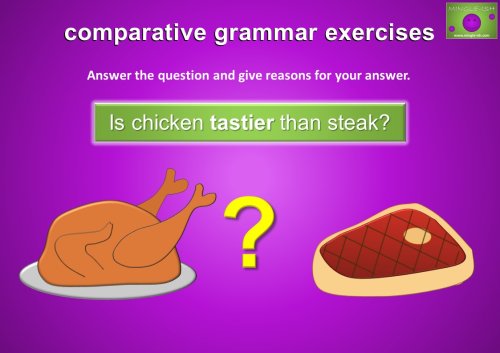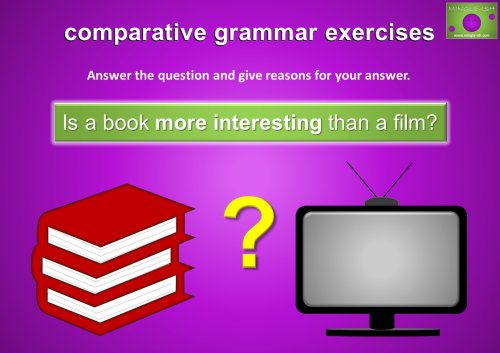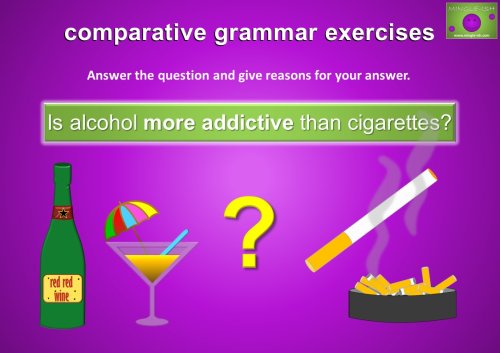Contents
You are bound to have stumbled across a comparative adjective before, even if you don’t know the correct term for them. They do exactly what they say on the tin – compare things (nouns) using adjectives (which are describing words if you didn’t already know!).
It’s important to remember that they compare two different people or objects. If you want to compare more than two objects, we use the superlative, which is another lesson entirely.
Adjectives like big and small, or fast and slow are some of the easier ones for you to learn to begin with as they only have one syllable. Then you can move on to some of the more difficult adjectives that exist in English.
forming comparative adjectives with examples
Want to know how to form comparative adjectives? Here are some simple rules and examples to help you get it right every time.
one-syllable adjectives
So, let’s see some examples of comparative adjectives in the real world. Let’s take a nice easy one to start with. The adjective ‘small’ means tiny or little. If you want to explain the difference between two objects using the adjective ‘small’. We simply use the following rule:
- Object A + be + adjective +er + than + object B
As you can see, we’ve added an ‘er’ to the end of the adjective, followed by the word ‘then’. Here are some examples:
- cheap
example – The burger is cheaper than the hot dog - high
example – The trees are higher than my house. - light
example – My bedroom is lighter than yours. - loud
example – It is louder at the front than at the side. - old
example – My grandma is older than my grandad - short
example – I am shorter than my son. - small
example – One twin is smaller than the other. - strong
example – Paul is stronger than Michael.
Here’s a few picture examples to help you understand.
A mouse is smaller than an elephant.
A car is faster than a tortoise.
one-syllable adjectives ending in ‘e’
If the one-syllable adjective ends with an ‘e’, we simply have to add an ‘r’. Here’ are the most common ones:
- brave
example – My big sister is braver than my brother. - cute
example – Lisa’s cat is cuter than yours. - large
example – His slice of cake is larger than mine. - nice
example – My teacher is nicer than yours. - ripe
example – The grapes are riper than the plums. - rude
example – My son is ruder than his sister. - safe
example – Our neighbourhood is safer than Michaels - strange
example – The film is stranger than the book. - wise
example – My grandad is wiser than a wizard.
one syllable – consonant + vowel + consonant
If a one-syllable adjective ends in a consonant + a vowel + a consonant, simply double the last consonant and add ‘er’.
- big
example – A camel is bigger than a zebra. - fat
example – My hamster is fatter than my guinea pig. - hot
example – Today is hotter than yesterday. - sad
example – I am sadder now that I have won the lottery. - thin
example – I was thinner in my teens than my twenties. - wet
example – This year is much wetter than last year.
two-syllable Adjectives ending in y
If a two-syllable adjective ends in a ‘y’, change the ‘y’ to an ‘I’ and add ‘er’.
- busy
example – Saturdays are always busier than Sundays. - dirty
example – My car is dirtier than yesterday. - easy
example – The test was easier than yesterday’s test. - friendly
example – Max is much friendlier than his twin brother - funny
example – The clown is funnier than the jester. - happy
example – I’m much happier in this house than my old house. - noisy
example – My new freezer is noisier than the old one. - pretty
example – Laura is prettier than Sammy.
two or more syllable adjectives
If an adjective has two or more syllables, the adjective stays the same and we add the word ‘more’ before it. For example:
- beautiful
example – The white cat is more beautiful than the tabby cat - boring
example – Maths class is more boring than Science class. - colourful
example – The houses on the left are more colourful than the ones on the right. - dangerous
example – A crocodile is more dangerous than a swan. - difficult
example – The first exam was more difficult than the last one. - intelligent
example – My dad is more intelligent than my mum. - peaceful
example – It’s more peaceful when the kids are at school than the holidays.
irregular adjectives
As with everything in English, there are always some things that don’t fit the rules. We call these irregular comparative adjectives. There aren’t that many common ones, so here’s a list for you to learn.
- bad
example – I feel worse than I did yesterday - far
example – The lagoon is much further than the lighthouse. - good
example – Tim is better than me at basketball. - little (an amount not a size)
example – The pink hoody is less expensive than the purple one. - many/much
example – I have more money than you. - old
example – I have bigger muscles than my elder brother. - well
example – I feel much better than I did on Monday.
comparative adjectives quizzes
Practice what you’ve learnt by completing the following activities on comparative adjectives.
First watch these videos and do the short quiz.
Do this speaking exercise by answering the following questions and give your reasons.
Is surfing more difficult than riding a moped?
Is a bull more ferocious than a lion?
Is football better than rugby?
Is a tree more beautiful than a flower?
Is the sun brighter than the moon?
Is chicken tastier than steak?
Is a book more interesting than a film?
Is alcohol more addictive than cigarettes?
Explore More Grammar Made Simple
Comparative adjectives are just the start! Keep learning with my other grammar guides on superlative adjectives, appositives, tense structures, and the subjunctive mood. Each page gives you clear examples and tips to level up your English.
Want even more practice? Check out my YouTube channel for fun grammar quizzes and short, snappy lessons.
